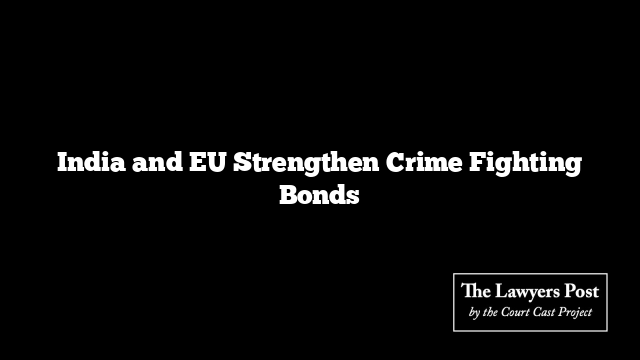In a significant development on March 21, the Central Bureau of Investigation (CBI) of India and the European Union Agency for Law Enforcement Cooperation (Europol) penned a strategic Working Arrangement to fortify collaborative efforts in the relentless fight against serious crime and terrorism. This accord aims to elevate the partnership between India and the EU, addressing the escalating challenges posed by transnational criminal activities and terrorism by fostering a robust framework for cooperation and communication.
Strategic Collaboration Framework
This Working Arrangement is not merely a bilateral agreement between CBI and Europol; it represents a comprehensive network of cooperation, linking Indian law enforcement with its counterparts in the EU Member States, third countries, and other entities associated with Europol. The arrangement outlines explicit protocols for communication and collaboration, thereby ensuring seamless interaction, sharing of best practices, and mutual support among the involved law enforcement agencies.
Cooperation Mechanisms
The scope of this cooperative effort encompasses more than the mere exchange of information. It extends to sharing specialist knowledge, situational reports, strategic analyses, and training activities. Moreover, it provides a structured approach for offering advice and support in individual criminal investigations, thereby enhancing the effectiveness of law enforcement efforts.
Leadership Perspectives
Praveen Sood, Director of the CBI, remarked on the arrangement as a culmination of extensive negotiations, heralding it as a critical milestone in the global fight against crime. He emphasized the need for swift international cooperation to combat the sophisticated and borderless nature of criminal networks, which exploit jurisdictional disparities and technological advancements to evade law enforcement.
Catherine De Bolle, Executive Director of Europol, underscored the arrangement’s significance against the backdrop of an increasingly interconnected world. She pointed out the intricate link between external security threats and the internal security of the EU, advocating for a unified global approach to effectively tackle these multifaceted security challenges.
Implications and Future Directions
With this arrangement officially in effect, a new horizon in international law enforcement cooperation unfolds. It signifies a pivotal step towards addressing priority crime areas that pose threats to both the European Union and the Republic of India. This partnership is poised to be a cornerstone in the global strategy to enhance security measures and safeguard citizens against the evolving landscape of international crime and terrorism.
| Key Aspect | Details |
|---|---|
| Date Signed | March 21 |
| Parties Involved | Central Bureau of Investigation (CBI), India and European Union Agency for Law Enforcement Cooperation (Europol) |
| Objective | To enhance cooperation in preventing and combating serious crime and terrorism |
| Scope of Cooperation | Exchange of information, specialist knowledge, situational reports, strategic analyses, and training activities |
| Significance | Represents a comprehensive framework for international law enforcement cooperation |
| Future Outlook | A pivotal role in addressing priority crime areas and enhancing global security measures |
As this strategic Working Arrangement takes effect, it heralds a new era of enhanced international cooperation. It represents a forward-looking approach to law enforcement, recognizing the necessity of global partnerships to tackle the increasingly sophisticated challenges posed by transnational crime and terrorism.





